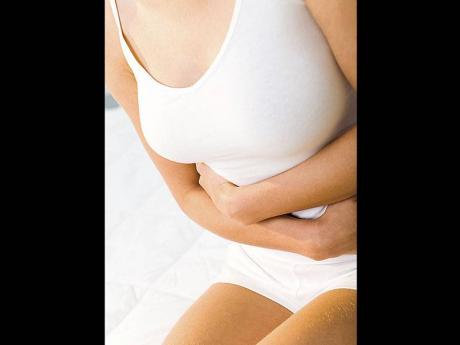Dealing with constipation
By Dr Tracey-Ann Brown
Constipation is the infrequent or difficult passage of stools. Normal bowel movement frequency varies widely. However, you probably have constipation if you've had at least two of the following symptoms with your bowel movements for the last three months:
- Less than three a week
- Hardness
- Excessive straining
- A sense of rectal blockage
- A feeling of incomplete evacuation afterwards
- A need to use manual manoeuvres (finger evacuation or manipulation of your lower abdomen)
Although not serious in most cases, chronic constipation may lead to complications or be a sign of a serious underlying disorder. Medical care should be sought if you experience: unexplained changes in bowel habits; symptoms are severe and last longer than three weeks; bowel movements occur more than three days apart despite diet and lifestyle changes; intense abdominal pain; blood in the stool; constipation that alternates with diarrhoea; rectal pain; pencil-thin stools; unexplained weight loss.
Chinese herbal remedies
Several Chinese herbal remedies are available to treat short-term, as well as chronic, constipation. These formulas will vary depending on the underlying and accompanying symptoms, such as: abdominal pain, haemorrhoids, bleeding, if the patient is weak, debilitated or elderly, just recovering from illness or whether it is alternating with diarrhoea. Commonly used herbs include:
ALOE VERA(Lu Hui): Used for both acute and chronic constipation. An at-home remedy involves blending and taking the clear inside of one-third to two-thirds of a medium-sized aloe leaf just before bed. It is widely available in liquid forms. It should be avoided by pregnant women and with rectal bleeding.
RHUBARB ROOT(Da Huang): This is a strong herb and may be used for both acute or chronic constipation. It should be avoided if frail/weak or nursing and used with caution during pregnancy.
SENNA LEAF(Fan Xie Ye): Best used for short-term relief. Available in tablets, powders and herbal teas. It should be avoided if frail, pregnant or nursing.
Acupuncture
Acupuncture treatments may be used alongside herbal remedies to correct constipation problems by regulating the smooth flow of qi in the intestines. Acupuncture points are often selected on the abdomen along with a few on the hands and feet and gently stimulated by inserting very thin needles at these points. In severe cases, a mild electrical current may be applied to the points on the abdomen.
Lifestyle & diet
Most cases of constipation are temporary. Simple lifestyle and diet changes can be used to prevent, alleviate and manage constipation. These include:
- A high-fibre diet. Beans, whole grains, fresh fruits and vegetables. Limit foods that have little to no fibre, such as cheese, meat and processed foods.
- Regular exercise.
- Drinking plenty of water and other fluids.
- Take the time for bowel movements. Don't ignore the urge to have a bowel movement.
- Irritable bowel syndrome
Bowel movement changes may also be caused by: irritable bowel syndrome, changes in lifestyle/routine (pregnancy, ageing, travel), frequent use or misuse of laxatives, specific diseases, intestinal obstruction or diverticulosis, some medications (sedatives, narcotics, some blood pressure medications), hormonal disturbances, haemorrhoids, sedentary lifestyle, dehydration and chemotherapy.
Dr Tracey-Ann Brown is an oriental medicine practitioner, herbalist and doctor of acupuncture; email: yourhealth@gleanerjm.com.

